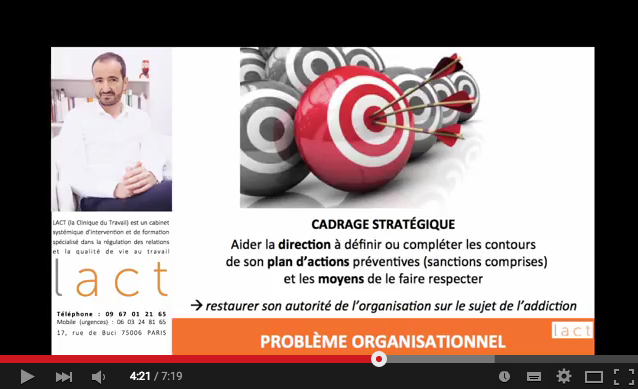 In this field as in others, it is obviously the problem solving methodology that we will apply to each situation in order to better define the problems and objectives to be achieved and the existing individual and collective resources, in such a way as to find alternative resources.
In this field as in others, it is obviously the problem solving methodology that we will apply to each situation in order to better define the problems and objectives to be achieved and the existing individual and collective resources, in such a way as to find alternative resources.
We will start by identifying at what level the problem is located so as not to maximize or minimize it.
Faced with a business situation, we look at whether it is an individual or organizational problem, department or the whole organization.
In the case of Pierre and Jacques (who has a drinking problem), it is Pierre, the manager, who is in difficulty. The strategic challenge will be to bring the problem back to a work problem to get the manager out of isolation and set up a framework to "equip" him.
The operative diagnosis will be based on individual interviews. In this case, we deliberately did not include Jacques, who cannot be mobilized because no one talks about his alcohol problem.
The oral restitution will put the situation in perspective and present possibilities for targeted actions.
In this case, we recommend individual support for Pierre to help him overcome his ambivalence. If Jacques had been involved, we would have had to do some work on Jacques. The problem could have been more organizational and concern a department or the entire organization: general management, managers, HRD... resigned or under pressure.
Several levels in the action plan can be addressed: company policy, the entire system including sanctions and aid, key players to restore authority, training of managers to help them better position themselves, communicate, to relieve them.
To establish the operative diagnosis, it is also possible to conceive of bringing together around the table the DG/HR, a group of managers involved in addiction problems, "preventers" (occupational physicians). And to make a restitution which will reveal the perception of each one.



